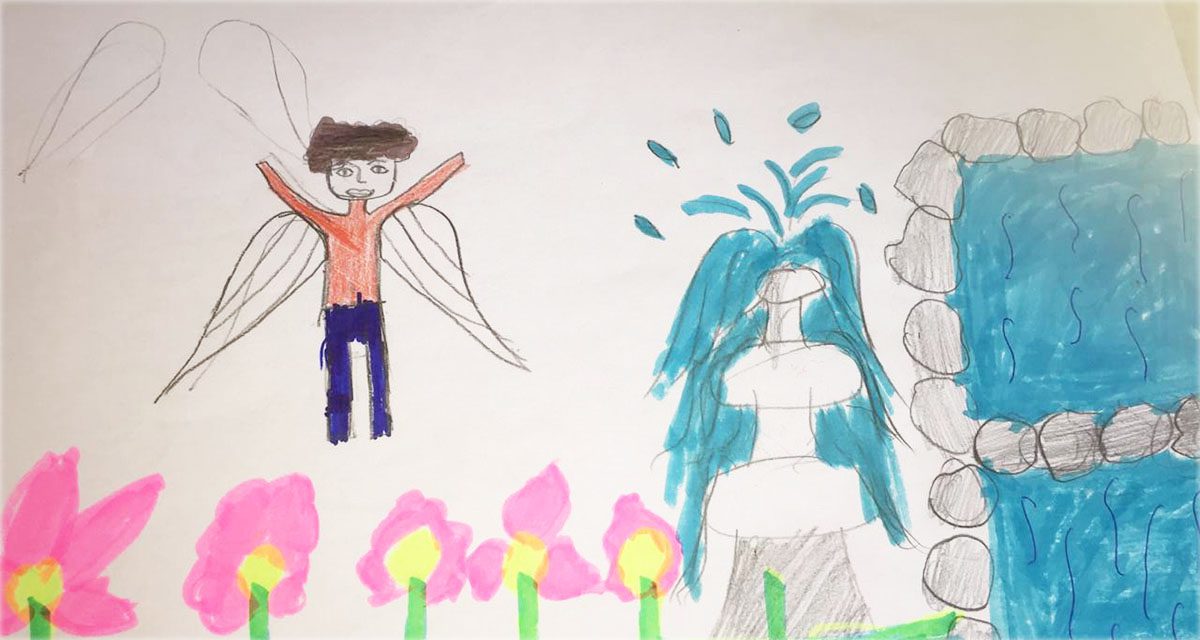- “My daughter asked me when I am coming home and it broke my heart”
- Amnesty launch global campaign to #BringAhmedHome
The Cypriot government offers the last hope for a Syrian man to return to his family in Cyprus, said Amnesty International as they launched a new campaign to #BringAhmedHome.
More than five months after Ahmed H was released from a Hungarian prison after being unfairly jailed for more than three years, he is still languishing in a Hungarian immigration detention centre, awaiting permission to return to his wife and children.
Speaking to my daughter on Skype, she asked ‘Baba, when are you coming home?’ and it broke my heart.
Ahmed H
“Speaking to my daughter on Skype, she asked ‘Baba, when are you coming home?’ and it broke my heart. After almost four years apart from my wife and two young daughters I do not understand why I cannot go home. I have a clean record in Cyprus, a business and a family,” said Ahmed H.
In 2015, Ahmed H left his home in Cyprus to help his elderly parents and other family members flee from the conflict in Syria to find safety in Europe. Following clashes with Hungarian border police in 2015, he was arrested and, under Hungary’s overly broad and vague anti-terrorism law, accused of “complicity in an act of terror”. Eleven people were charged, but Ahmed H was the only person charged with an act related to terrorism.
Following an appeal, a retrial was ordered in which he was again convicted and sentenced to five years in prison, despite a glaring lack of evidence to substantiate the draconian terrorism charge. His detention sparked an international campaign with more than 100,000 people signing a petition for his release.
Ahmed H was conditionally released in January and is awaiting a decision by the Cypriot government whether to allow him to return to his family. Officials have told Amnesty International that Ahmed’s case is under examination but have not said when a decision will be made.
Ahmed should never have been prosecuted, let alone convicted of a terrorism offence.
Julia Hall, Researcher on Counter Terrorism and Human Rights, Amnesty International
“Ahmed should never have been prosecuted, let alone convicted of a terrorism offence. His treatment is part of Hungary’s systematic scapegoating of refugees and migrants,” said Julia Hall, Amnesty International’s Researcher on Counter Terrorism and Human Rights.
“The fate of Ahmed H now lies in the hands of the Cypriot government as does the future happiness of his wife and young daughters. The authorities offer hope that the injustice Ahmed has already suffered will not be cruelly extended any longer, and that he is finally permitted to return home to be reunited with his family.”
For more information or to arrange an interview, contact [email protected] +447936766445 or +44 2030365599
Background
In August 2015, Ahmed H left his family home in Cyprus, where he had lived since 2006, to help his elderly parents and six other family members flee Syria and find safety in Europe. During clashes with police on the Hungarian border, some people threw stones, including Ahmed.
For this, a Hungarian court eventually found him guilty of “complicity in an act of terror”, under Hungary’s extremely vague counter-terrorism laws. He was originally sentenced to 10 years in prison,later reduced to 7 years and then 5 with eligibility for early release after his second trial.
On 19 January 2019, Ahmed H was released from prison and sent to a Hungarian immigration detention centre.
Ahmed H is a Syrian national. He currently possesses no valid travel document, and his residence permit for Cyprus (acquired through marriage to a Cypriot national) expired while in detention in Hungary. The Hungarian authorities have asked Cyprus to take Ahmed H back and officials in Nicosia are currently considering the request. Hungarian immigration officers have approached Ahmed H about being sent to Syria. He would be at risk of serious human rights violations should he be forcibly sent back to Syria.
The decision to let Ahmed return to Cyprus is entirely dependent on the discretion of the Cypriot government. Amnesty International has conducted advocacy over the last months with the government of Cyprus to inform them of the unfair process that Ahmed H endured in Hungary and to encourage them to reunite Ahmed H with his family. The organization is now asking its members and the broader public to take action to help get Ahmed H home where he belongs.


